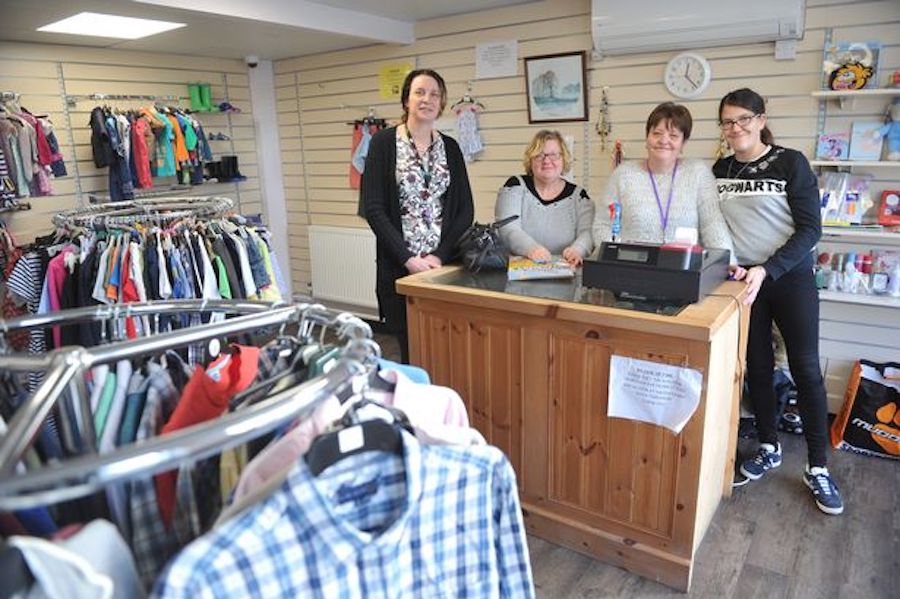In this blog, Lisa Hilder, Trustee of Hull Women’s Network (a SASC borrower), reflects on the impact of Covid 19 on domestic violence services.
In the first quarter of this year, life was ‘normal’. Do you remember? We had problems and we had plans about how to fix them. At Hull Women’s Network that meant dealing with issues around domestic violence and doing our best to address them. Often the solutions came in quickly finding housing for a woman that was in the right place and would keep that individual safe and away from an abuser.
We were already busy, sadly. Domestic violence is difficult to ‘fix’, even if economic and social conditions are buoyant. Over the years it had become clear to us that the impact of our support services was closely linked to the housing an individual returns to at night. If it’s not safe, if it’s of poor quality, there is only so much impact you can create. Give a woman security and decent accommodation and you turn that on its head. National statistics show that a woman, on average, returns to an abusive partner 7 times before leaving for good. At HWN we can make sure they have a secure house to go to and they leave the first time they take that brave step.
Recently, we have endeavoured to make our organisation more resilient and grow our services sustainably so we can help more women in the city. Much of this growth has centred on housing; moving ourselves from a position where too many staff hours are spent sourcing housing for clients, to a position of control where were owned more stock, of good quality, that we could make available at short notice. This growth was designed with and supported by the investment of Social and Sustainable Capital (SASC), a social investment firm. The product – a hybrid of all the good qualities of mortgages and leases – recently won the Social Investment Award at the NatWest SE100 Awards in recognition of it’s innovation; and the product has now been rolled out into the Social and Sustainable Housing fund so that other charities across the UK can grow their services to meet local needs.
So then came lockdown. Tragically, we soon found that the resilience we had worked hard to create was being tested. In April, we dealt with 47% more cases of domestic violence cases than in March. That surge has continued throughout lockdown as the abnormality of life permanently at home tested relationships to the limit. Our team has worked tirelessly to offer advice and practical support to women across Hull. Importantly, we have worked closely with the council and other agencies to try and deliver joined up care.
At the same time that cases of domestic violence were rising, cases of homelessness were dropping dramatically, as the government’s call to get ‘Everyone In’ off the streets was answered. In an incredible display of what is possible, 6,000 rough sleepers were put up in hostels and hotels across the country, putting paid to the idea that homeless can not be ‘fixed’. But this enormous effort brought with it some unintended consequences that has seen HWN work directly with the Everyone In cohort during lockdown.
By bringing people in off the streets, you created households of individuals who were locked down together. HWN found itself responding to reports of rape and violence against women in some of these hostels, often against women who had found themselves homeless in the first place because they were escaping domestic violence. Having a flexible supply of housing under our control allowed us to extract women from these hostels and give them safe and secure accommodation.
Our expanded housing portfolio also meant that we became an important intermediary for smaller domestic violence charities in Hull, as well as the council’s housing team who all found themselves stretched by the impact of lockdown.
It was during lockdown when we were working across the city and fighting to help people despite the difficult circumstances that I had an epiphany: HWN had come of age. The resilience we have sought to build with the support of SASC was not just about property or balance sheet, it was a mindset, a belief in ourselves and our ability to adapt and deliver whatever the situation. Compared to many others, we are still a small charity, but by working on our growth and developing our own self-belief as a team, we have created additional organisational resilience. This explains how we have come to be so relied upon during this crisis. It isn’t just our services and housing; it is the knowledge that we have the ability and willingness to devise the solutions.
This will prove invaluable to us as we continue to work and move forward. Not least as we push for funding to cover the additional work we are providing in Hull as well as the wider range of housing we offer. Unlike homelessness, domestic violence continues to be an overlooked perennial in the garden of social needs. There was some money from central government, and HWN were lucky enough to receive a small part of that, but it was so slow in arriving. In fact, we have only just received the last tranche.
While we have acknowledged the truth that without safe, stable and appropriate accommodation behind an individual, the value of the services will be impacted, the same is also true in reverse. However good the house is, for many people without the right support they will never be able to flourish. These services must be funded properly or risk not working at all.
SASC’s Social and Sustainable Housing fund is designed to help charities who are delivering frontline services to expand their property portfolio. In essence, to buy back the Private Rented Sector and put it in the hands of charities that can make the most of them. It is already working with charities who are helping the Everyone In cohort and charities like HWN across the UK. As part of their due diligence they go and speak to local commissioners and councils. In part this is to make sure that the charity is recognised locally as a valuable service provider, but also to be able satisfy themselves that there is real commitment to support these frontline providers financially going forward.
Charities like HWN will continue to work hard this summer and as covid ebbs and flows until we have a vaccine, we expect to respond to peaks of violence against women. With our new found resilience we’ll be encouraging other charities to think of their own growth and continuing to call for proper resourcing of frontline services.
This was first published on 3rd September 2020 in Charities Financial magazine.


